 W
WAphonopelma marxi is a species of spider in the family Theraphosidae (tarantulas), found in United States. Aphonopelma behlei and A. vogelae, at one time considered separate species, are now considered to be synonyms.
 W
WAptostichus atomarius, the San Bernardino hills trapdoor spider, is a species of wafer-lid trapdoor spider in the family Euctenizidae. It is found in the United States.
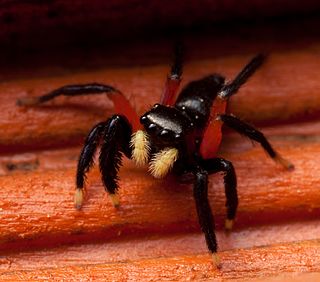 W
WEuophrys monadnock is a species of jumping spider which occurs in the United States and Canada. It was first described by James Henry Emerton in 1891.
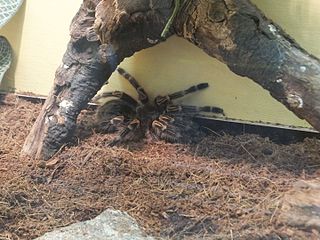 W
WEupalaestrus campestratus, known as the pink zebra beauty, is a terrestrial tarantula native to Brazil, Paraguay, and Argentina. It is dark brown and has yellow striped markings near its patellae, resembling Grammostola pulchripes, although its maximum leg span of six inches makes it significantly smaller. It is known for its generally docile and tolerant temperament, and is therefore an attractive pet tarantula to hobbyists who prefer these traits. It is slow moving and generally considered hardy in captivity.
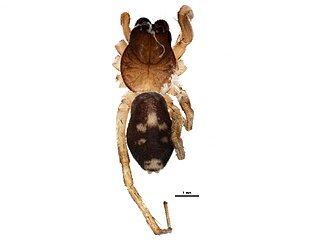 W
WFalconina gracilis is a species of true spider in the family Corinnidae. It is found in Brazil, Paraguay, Argentina, and has been introduced into the United States.
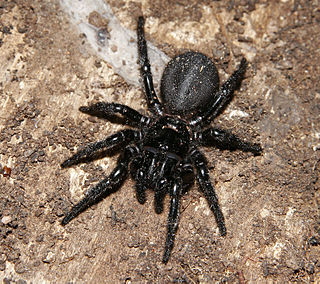 W
WHadronyche modesta, the Victorian funnel-web spider, is found in Victoria, Australia.
 W
WHebestatis theveneti is a species of cork-lid trapdoor spider in the family Halonoproctidae. It is found in the United States.
 W
WThe Malaysian earthtiger tarantula, scientific name Omothymus schioedtei, is a species of spider in the family Theraphosidae (tarantulas), found in Peninsular Malaysia. It is also known by the synonym Cyriopagopus schioedtei.
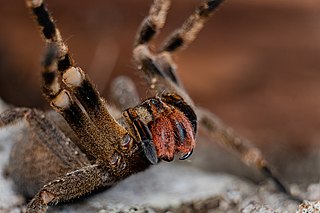 W
WPhoneutria nigriventer is a species of medically significant spider in the family Ctenidae, found in South America. Along with other members of the genus, they are often referred to as Brazilian wandering spiders.
 W
WSegestria pacifica is a species of tube web spiders in the family Segestriidae. It is found in the USA.
 W
WTriaeris stenaspis is a species of spider in the family Oonopidae, with a pantropical distribution. It is also found in Iran and has been introduced into Europe. A very small spider, with a maximum body length of under 2 mm (0.08 in), it has been shown to prey successfully on springtails. Only females have ever been found, and the species may be parthenogenetic, being able to produce female offspring from unfertilized eggs.
 W
WTutelina harti is a species of jumping spider in the family Salticidae. It is found in the United States and Canada.